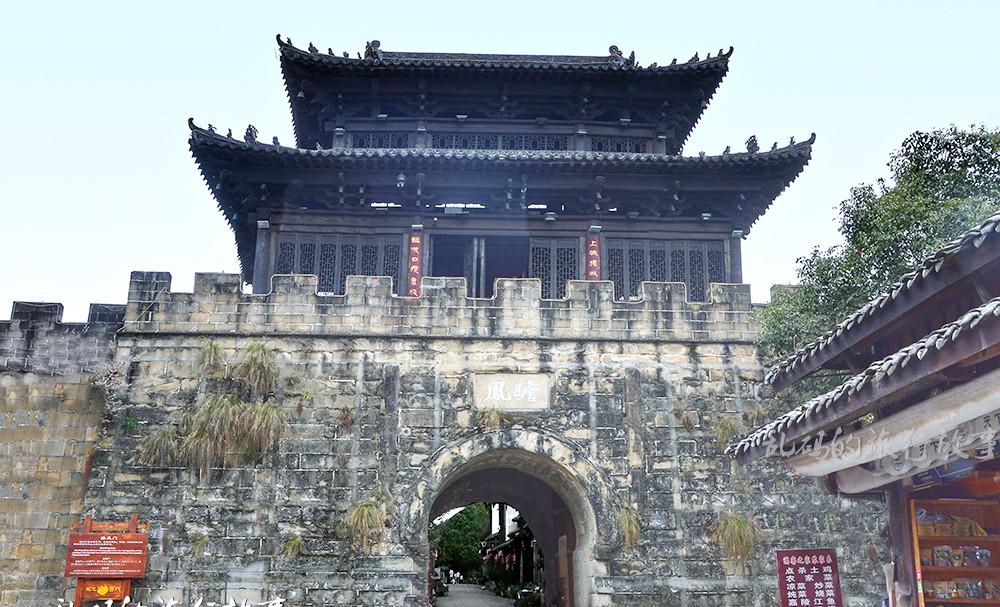Sichuan Guangyuan, is a city with a long history of more than 4,000 years, but also the hometown of the only female emperor in Chinese history, Wu Zetian, the territory of the landscape is majestic, rich in history and culture, known as "Jianmen Shu Dao, the empress's hometown". When you come to Guangyuan, the most unmissable attraction is the ancient city of Zhaohua located in Zhaohua Town, Zhaohua District, at the confluence of the Three Rivers of Bailongjiang, Jialing River and Qingjiang River.

Zhaohua Ancient City, ancient name Ye Meng, in 972 AD, Song Taizu for "show the emperor's virtue, transform the heart of the people", changed it to Zhaohua and continues to use it to this day. As an important part of the national key scenic spot - Jianmen Shudao Scenic Area, Zhaohua Ancient City is surrounded by mountains on all sides, facing water on three sides, and the total length of the ancient Shu Road in the territory is more than 50 kilometers, because the water of the Jialing River is in the water here, taiji Tiancheng, forming a natural wonder of "the world's first landscape Taiji".
According to records, around 400 BC, the ancient Shu state established the "Tho State" in Cangxi County from the north to the south of Hanzhong, and set the capital on an earthen dam where the Jialing River and the Bailong River converged in the ancient city of Zhaohua. In 316 BC, after the Qin state conquered the state of Tho, Yemeng County was established here, making it one of the earliest county administrations in China to implement the county system, so the ancient city of Zhaohua was also known as the "second capital of the Shu state" and "the first county of Bashu".
Zhaohua Ancient City is also an important birthplace of the Culture of the Three Kingdoms and the only ancient city of the Three Kingdoms that has been best preserved in China so far. In 211 AD, after Liu Bei entered Sichuan, he created a base area here, widely collected the people's hearts, trained soldiers and horses, accumulated grain and grass, and finally achieved the shu Han emperor's business, and many famous Three Kingdoms stories, including Zhang Fei picking up the lamp night war horse chao, Yan Yan retreating from Cao Jun, Jiang Weibing trapping Niutou Mountain, etc. also occurred here, so there is also the saying of "Shu Hanxing, Longzhong Plot, and Ye Meng".
Before the construction of the ancient city of Zhaohua, there was a pass here - "Ye Meng Guan". At that time, from Chengdu to Chang'an, it was necessary to pass through here, and the history called "the throat of Quan Shu, the key of northern Sichuan". After the completion of the ancient city, the "Yemeng Pass" was not demolished, it was still located at the west gate of the ancient city, and the name did not change, such a building that is both a city gate and a pass, the only place in China.
Because zhaohua ancient city is an important county and water and land transportation hub on the ancient Shu yi road, since the Qin and Han dynasties have been developed in commerce and commerce, culture is prosperous, once with "a thousand people in the day, ten thousand lights after night" flourished, the local folk also circulated "to Zhaohua, do not want to father and mother" folk song. With the completion of the Sichuan-Shaanxi Highway in 1936 and the opening of the Baocheng Railway in 1953, Zhaohua's transportation status was no longer important, and the once prosperous ancient city became increasingly deserted.
Although the prosperity of the past is no longer there, a large number of ancient ruins of the Three Kingdoms in the ancient city, such as the Ancient Yidao, Yemeng Ancient Pass, Fei Yi Tomb, Wuhou Ancestral Hall, Fei Jinghou Ancestral Hall, Shengli Dam, Tianxiong Pass and other styles are still intact, which can be called a precious example of the study of the politics, military, economy and culture of the Shu Han Dynasty, attracting tourists and scholars from all over the world to visit, tourism and archaeological research.
Located at the intersection of Xiangfu Street and Nanmen Lane, the "Sword and Sword Dam Junchen Garden" was a place where Liu Bei trained soldiers during the Three Kingdoms period, and was named "Sword and Sword Dam" because of the daily sword flying and knife dance. In the garden stands the stone statues of 11 Shu Han generals who had fought and lived in Zhaohua, such as Liu Bei, Zhang Fei, Ma Chao, Huang Zhong, Pang Tong, Wei Yan, Fei Yi, Jiang Wei, Huo Jun, Guan Suo, and Bao Sanniang, strolling through the bamboo forest, as if entering a time tunnel and encountering the heroes of the Three Kingdoms unexpectedly.
Admission to Zhaohua Ancient City is free, but 6 major attractions in the scenic spot, such as the County Ya, Keju Examination Shed, Jinghou Ancestral Hall, Ming Dynasty City Tower, Confucian Temple, and Sword and Sword Dam Junchen Garden, need to charge 58 yuan, and close at 5:30 pm. Arrival method: Zhaohua Ancient City is 28 kilometers away from Guangyuan City, you can take bus No. 6 and No. 28 from the railway station to Nanhe Bus Station, and then take a minibus to Zhaohua Ancient City, the fare is 9 yuan.